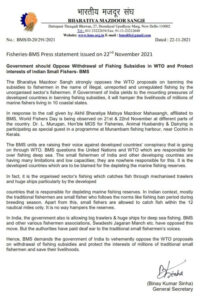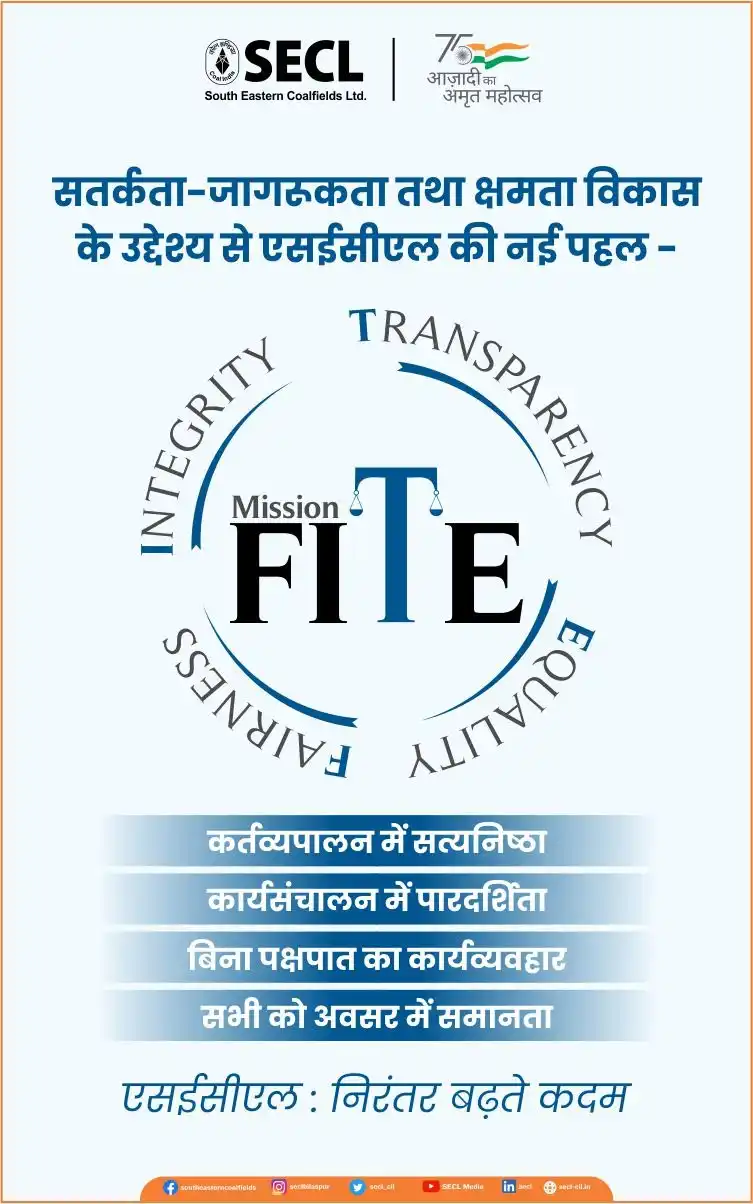New Delhi, 22 Nov. The Bharatiya Mazdoor Sangh (BMS), an affiliate of the Rashtriya Swayamsevak Sangh (RSS), wants the Centre to oppose a group of countries that has urged the World Trade Organization (WTO) to push for withdrawal of fishing subsidies, arguing that such a move will be detrimental to the interests of small fishermen.
The organisation representing labour unions has alleged that by allowing big trawlers and ships to resort to deep-sea fishing, the government has worsened the difficulties faced by small fishermen.
Last month, 296 scientists from 46 countries urged the WTO to pass a motion to ban fishery subsidies. In a submission to the WTO, the scientists said the ban must be considered to “curb overfishing, biodiversity degradation and loss, and carbon dioxide emissions, and to safeguard food and livelihoods”.
“WTO members must prohibit fisheries subsidies that cause harm such as those that lower the cost of fuel and vehicle construction and those that provide price support to keep market prices artificially high,” the scientists wrote.
The BMS has, however, argued that if the Indian government agrees to the demand from developed countries in banning fishing subsidies, such a move will hamper the livelihood of millions of marine fishermen in 10 coastal states.
“There is pressure building on the Indian government to also push for ending subsidies. So, we are urging the government to refrain from siding with the demand as the majority [of fishermen] in India are small fishermen who do not have the wherewithal for deep-sea fishing,” said Binay Kumar Sinha, BMS general secretary.
He said the organisation strongly opposes the proposals on banning subsidies to fishermen in the “name of illegal, unreported and unregulated fishing” by the organised sector’s fishermen.
Pointing out the differences in fishing practices followed in India as against those in developed countries, Sinha said small fishermen in India and developing countries face many limitations and low capacities, and are not responsible for depleting marine reserves.
“It is the organised sector’s fishing that catches fish through mechanised trawlers and huge ships, particularly by developed countries that are responsible for depleting marine fishing reserves. In India, traditional fishermen follow norms, such as observing a fishing ban during breeding season. Apart from this, small fishermen are allowed to catch fish within only 12 nautical miles. It is in no way hampering the reserves,” he said.

Follow on Facebook (https://www.facebook.com/industrialpunch) and Twitter (https://twitter.com/IndustrialPunch) for updates on social media…














